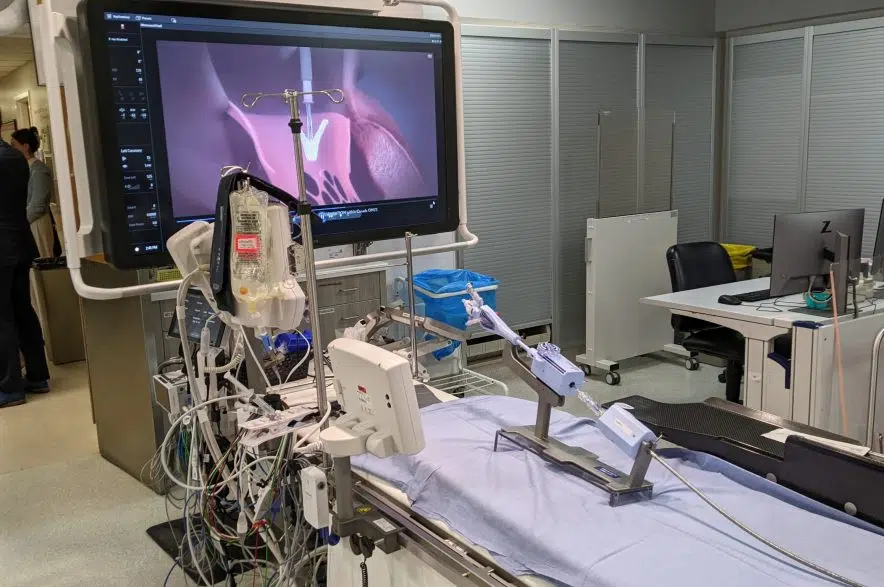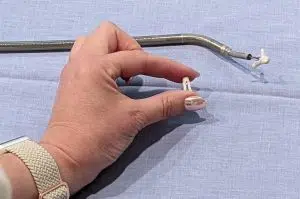People in Saskatchewan won’t have to travel out of the province to get a new specialized cardiac procedure done.
This year, the province began providing $330,000 in funding to help establish the Transcatheter Mitral Valve Repair (TMVr) program. It’s a first-of-its-kind program in the prairie provinces, according to the Government of Saskatchewan.
The MitraClip used to stop leaking of the mitral heart valve during surgery. (Shane Clausing/650 CKOM)
The procedure, which is performed at Royal University Hospital in Saskatoon, uses a MitraClip to stop the leaking of the mitral heart valve. A leaking valve can damage the heart and eventually lead to congestive heart failure if it’s left untreated.
Previously, patients had to travel from Saskatchewan to Ontario or British Columbia to get the procedure done.
Intervention cardiologist Dr. Janine Eckstein is one of two doctors in Saskatchewan who can perform the surgery. She spoke Tuesday about the importance of being able to perform these kinds of special surgeries here in the province.
“The procedure helps us fix patients who have leaking mitral heart valves,” Eckstein explained. “Left untreated, this leads to congestive heart failure, hospitalizations and deaths.
“It’s an alternative to open-heart surgery in patients that are high risk for surgery or patients who have multiple medical conditions.”
Surgeries typically take between one and three hours and most patients are able to go home the day after the surgery.
Such was the case for 83-year-old Virginia Nordlee, who was the first patient to receive the procedure in Saskatchewan in January.
“I am very, very, very grateful to have had my procedure done by Dr. Eckstein and her team at RUH,” Nordlee said in a media release. “I’m so thankful for the outcome … It didn’t hurt; I went home the next day and I don’t have any stitches or scars to show.”
Dr. Max Buchko, the other doctor who can perform this surgery in Saskatchewan, says it saves doctors and the system a lot of time compared to doing a procedure like open-heart surgery.
“Open-heart surgery with a mitral valve repair would typically take between three and five hours. After the surgery, people are in hospital between five and 10 days. This (new program) just provides a different stream for how we can repair the valves,” Buchko said.
“Depending on how (dysfunctional) the valve is, we can cater our procedure to what the patient needs. In having all of these tools in Saskatoon, this allows us to provide complete care for the people of Saskatchewan.”
Initially, the doctors responsible are hoping to complete 10 surgeries this year; so far, they say they’ve completed seven of them.
While the method is a little more expensive than a typical open-heart surgery, both Buchko and Eckstein suggest with less time spent in the hospital, it will save the system in the future.












